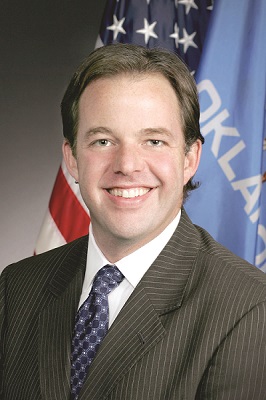
Oklahoma Senator Rob Johnson’s proposed bill to impose a small tax on e-cigarettes, formally ban their sale to minors and require any vendors to be licensed seems like a harmless and sensible piece of legislation on first reading about it. However, there is a darker vein lurking in the densely layered legalese and clunky phrases like “vapor products,” since the bill would also make it illegal to buy e-cigarettes online and for sellers in the state to buy their products from anybody other than Oklahoma-based distributor or wholesaler. This would essentially cripple small businesses and drastically impact on the availability of e-cigs in the state.
Thankfully, the bill was so badly constructed, that although it snuck through the Oklahoma Senate, the House Public Health Committee won’t even give it a hearing. This was reported by CASAA, who also issued a call to action in response to the bill, but actually missed it going through at the state Senate. The reason for this is the most disturbing part of this story, and it opens a door to a whole world of political trickery. The plain and terrifying truth is that politicians like Senator Johnson are adept at sneaking legislation past the public eye in this way, to the point where it had passed at state before one of the leading consumer advocacy groups had even heard about it.
So how did he do it? Well, the most obvious way these types of things evade the public eye is because they’re written in such purposefully dense and impenetrable language. The term “vapor product” to represent the widely used term “electronic cigarette” – which is included in the definitions of “vapor product” and nowhere else – is a perfect illustration of this issue. It’s almost as if the language is purposefully constructed so that it is never quite clear what is being discussed. Actually reading through the whole bill is an impressive feat; thanks to the repetitive and linguistically-challenged way it’s presented. This issue obviously spans much wider than the world of e-cigs, but it’s clearly worth mentioning.
The biggest problem, however, is what enabled it to escape the radar of CASAA and other industry groups. The initial draft of the bill was only four pages long and made no mention whatsoever of electronic cigarettes. With no warning whatsoever, it was quietly replaced with a 34-page monstrosity with the potential to cripple e-cigs across the state. If it wasn't for the Oklahoma House Public Health Committee rejecting it out of hand, there could well have been legislature passed which imposed taxes and absurd regulations on the industry without anybody really knowing anything about it.
The story doesn't really lend itself well to positive interpretations. You might argue that the initial draft seemed good at first yet in the end absolutely needed to be made around eight times as long and drastically changed, but this doesn't really stand up to scrutiny. It is evidently a move deliberately constructed to avoid the expected and wholly reasonable backlash against these plans.
Although it’s been thankfully held up, it will probably be back at some point. CASAA is still encouraging Oklahoma residents to write to members of the House Public Health Committee, and has suggested that Senator Johnson pretty much strip down the entire bill to simply ban the sale of e-cigs to minors. Whether he will take this advice is unsure, but the entire story should sound alarm bells in the heads of vapers across the country. Legislation on e-cigarettes is coming, and we in the community should be on the lookout for any other attempts to sneak regulations in through the back door.

